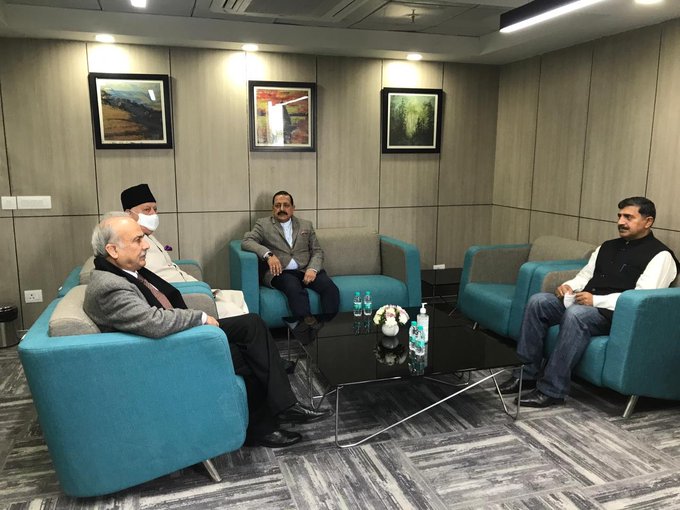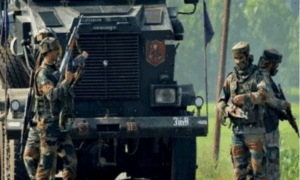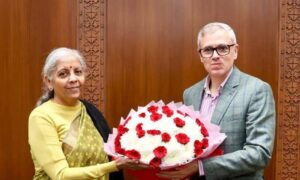
Picture : Twitter / ANI
Delimitation Commission on Jammu and Kashmir has proposed six additional assembly seats for Jammu region and one for Kashmir while reserving 16 constituencies for Scheduled Castes and Scheduled Tribes, triggering strong protests from parties such as the National Conference which made it clear that it would not sign the report in its present form.
Participating for the first time in the commission’s deliberations, the NC’s three Lok Sabha members led by party president and former chief minister Farooq Abdullah expressed their reservations over the draft report, especially the biased process of seat sharing, a party spokesperson tweeted.
The party expresses unreserved resentment over the draft of the Delimitation Commision. @ImranNDar pic.twitter.com/Y1daTMQzib
— JKNC (@JKNC_) December 20, 2021
The party, within hours of the meeting, made it clear that it ‘will not be a signatory to this report’.
The People’s Democratic Party, J-K Apni Party and the People’s Conference (PC), which is regarded as being friendly towards the Bharatiya Janata Party, also protested strongly against the commission’s draft recommendations which will alter the electoral map of Jammu and Kashmir.
Kashmir division currently has 46 seats and Jammu 37.
The population of Jammu region is 53.72 lakh and Kashmir division 68.83 lakh, according to the census of 2011.
BJP MP and union minister Jitendra Singh, however, said after the meeting that there was no objection from any of the associate members and ‘in fact Dr Abdullah went on to say that there were some misgivings about the commission….’
“They have done a good job. There was no objection from any side. Now the Delimitation Commission has proposed to increase the seats to 90. They have followed objective parameters on the basis of population, accessibility, topography and terrain of individual districts. I don’t feel anyone would be dissatisfied with it. No political party can find fault with it,” Singh said.
However, the National Conference, in its tweet, said, ‘Misrepresenting and distorting the facts with malicious intention! Very misleading statement. We have clearly expressed our resentment over the draft of the Delimitation Commission, the biased process of seat sharing. The party will not be a signatory to this report.’
According to a statement issued by the Delimitation Commission, associate members appreciated the fact that the commission visited the Union Territory and met a large number of people and assured that all necessary assistance would be extended in the work of delimitation.
The commission headed by former Supreme Court judge Ranjana Desai held its second meeting in New Delhi.
It has five Lok Sabha members from Jammu and Kashmir as associate members and Chief Election Commissioner Sushil Chandra as ex officio member.
Giving a presentation before the associate members, Deputy Election Commissioner Chandra Bhushan Kumar informed that since the last delimitation, the number of districts has increased from 12 to 20 and the number of tehsils from 52 to 207.
The population density in the districts varies from 29 persons per square km in Kishtwar to 3,436 persons per square km in Srinagar.
Taking all these into account, the Delimitation Commission has categorised all 20 districts in three broad categories A, B and C giving margin of 10 per cent (plus/minus) of average population per assembly constituency, while proposing allocation of the constituencies to the districts.
The commission has also, for some districts, proposed carving out of an additional constituency to balance the representation for geographical areas having inadequate communication and lack of public conveniences due to their inhospitable conditions on the international border.
For the first time, in Jammu and Kashmir, nine seats are proposed to be allocated for Scheduled Tribes out of 90 seats on the basis of population. Seven seats are proposed for Scheduled Castes.
Twenty-four seats of the assembly continue to remain vacant as they fall under Pakistan-occupied Kashmir (PoK).
The commission has asked all associate members to submit their views on the proposed increase of seats by December 31.
[the_ad id=”41101″]


















